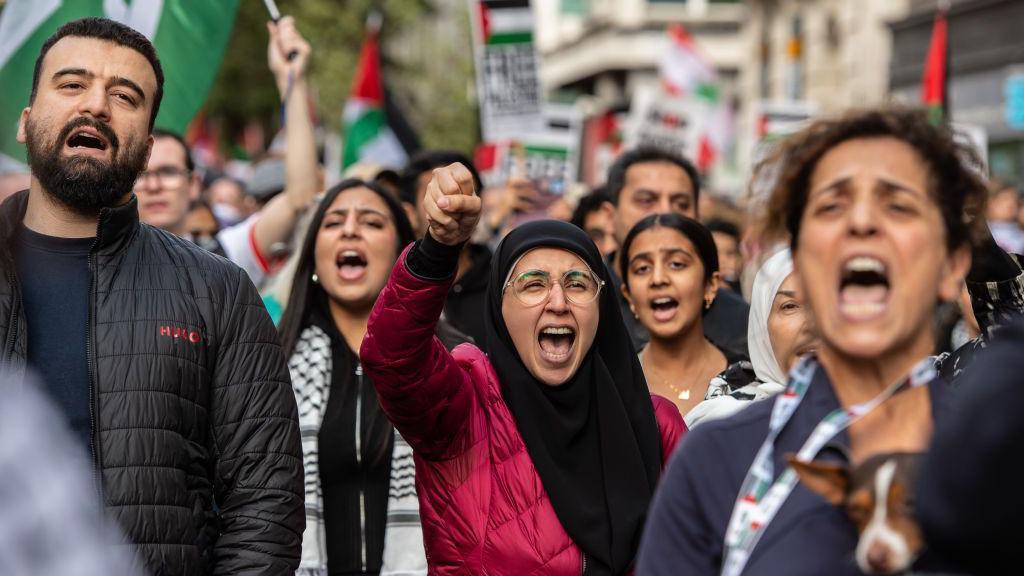Pro-Palestinian demonstrators recently took to the streets of central London, demanding an immediate ceasefire in Gaza amidst the escalating conflict in the Middle East. The march, which drew tens of thousands from diverse regions of the country, commenced at Russell Square and concluded at Whitehall, culminating in speeches delivered outside Downing Street. Organized primarily by groups like the Palestine Solidarity Campaign, the event highlighted the ongoing tensions between Palestine and Israel, marking the one-year anniversary of the October 7 attacks that catalyzed the current hostilities. While reports indicated that the Metropolitan Police struggled to accurately assess the turnout, they noted that the number of participants appeared to exceed other recent protests.
As attendees chanted slogans such as “ceasefire now” and brandished placards emblazoned with messages like “hands off Lebanon,” the demonstration exhibited a largely peaceful atmosphere. Notable speakers, including former Labour leader Jeremy Corbyn, addressed the crowd, emphasizing the urgent need for an immediate end to violence in Gaza and elsewhere in the region. However, the event was not without disorder, as a total of seventeen individuals were arrested during the protest. Charges against these individuals ranged from public order offenses, including racial aggravation, to serious accusations such as assaulting emergency workers and supporting a proscribed organization.
The protest faced challenges from a counter-demonstration, prompting police to establish a separation between the opposing groups. While a small contingent from the pro-Palestinian side attempted to breach police lines to engage with the counter-protesters, they were subsequently restrained, and three additional arrests occurred during the incident. Police outlined specific conditions to manage the counter-protest, criticizing its proximity to the main march as violating previously agreed-upon guidelines. Among the arrests made during the day, one suspect was allegedly seen wearing a parachute, which raised suspicions due to the context of their display.
In addition to the London events, pro-Palestinian supporters conducted a silent march in Edinburgh, echoing calls for a ceasefire and advocating for sanctions against Israel by both the UK and Scottish governments. These simultaneous demonstrations underscore growing frustrations and calls for political action in response to the ongoing humanitarian crisis in Gaza, which has drawn international attention and condemnation. As the situation in the Middle East remains convoluted and charged with tension, protests such as these serve as vital platforms for activists and advocates seeking to influence policymakers and heighten awareness.
While the discourse among demonstrators remains focused on the plight of Palestinians and a desire for peace, the impact of the ongoing conflict has escalated significantly since October 7, 2022. Following a high-profile attack by Hamas militants, which resulted in considerable loss of life and hostage-taking in Israel, Israel’s military response has wrought widespread devastation in Gaza. Reports indicate that the humanitarian toll has reached approximately 41,825 deaths according to the Hamas-run health ministry, prompting further outrage and calls for intervention from various groups within the UK and beyond.
Looking ahead, both pro-Palestinian and counter-protest events signify an increasingly polarized political landscape and underscore the necessity for open dialogue amid rising tensions. On the horizon, a memorial event organized by Jewish groups in Hyde Park serves as a reminder of the complexities surrounding the ongoing conflict, aiming to honor victims on both sides while advocating for peace and reconciliation. As the protests unfold and the humanitarian crisis deepens, the role of civil society and community activism will be crucial in seeking resolutions to this enduring and tragic conflict.

